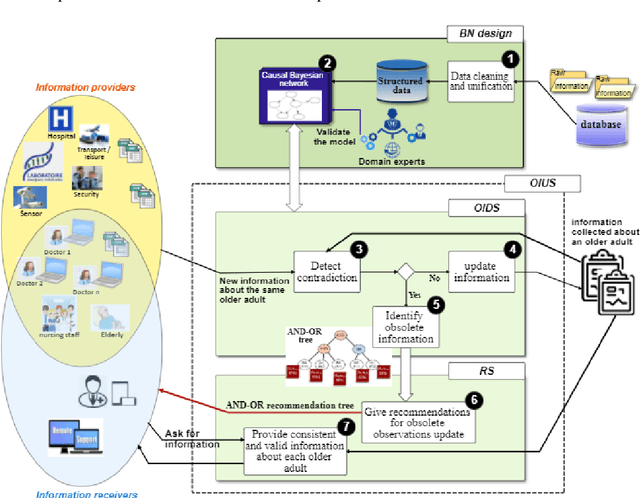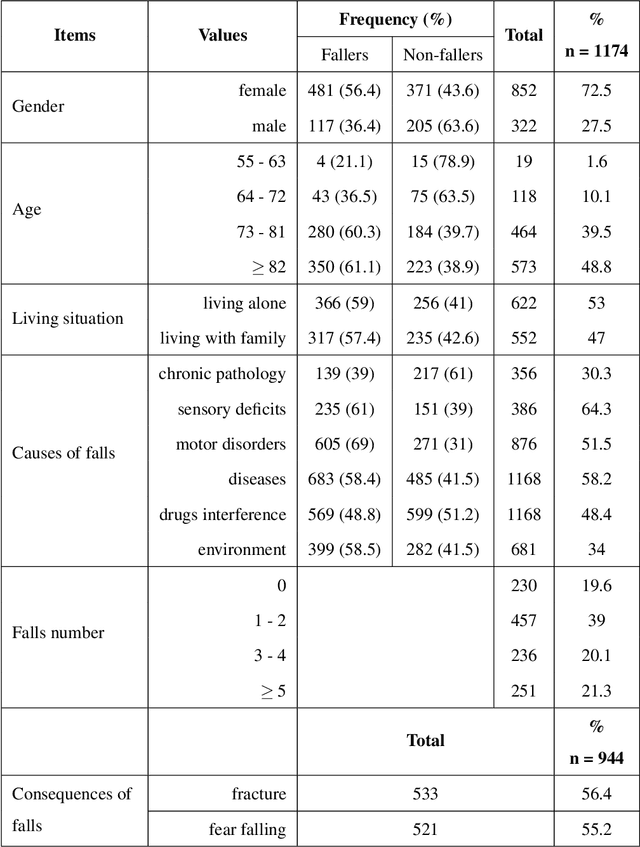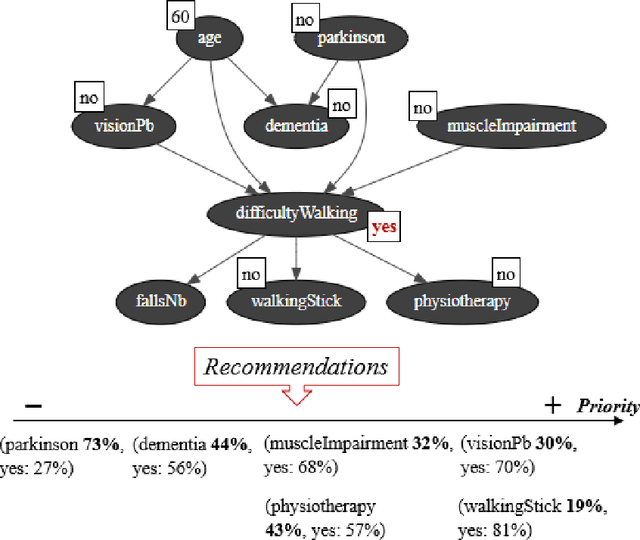Obsolete Personal Information Update System for the Prevention of Falls among Elderly Patients
Paper and Code
Jan 20, 2021



Falls are a common problem affecting the older adults and a major public health issue. Centers for Disease Control and Prevention, and World Health Organization report that one in three adults over the age of 65 and half of the adults over 80 fall each year. In recent years, an ever-increasing range of applications have been developed to help deliver more effective falls prevention interventions. All these applications rely on a huge elderly personal database collected from hospitals, mutual health, and other organizations in caring for elderly. The information describing an elderly is continually evolving and may become obsolete at a given moment and contradict what we already know on the same person. So, it needs to be continuously checked and updated in order to restore the database consistency and then provide better service. This paper provides an outline of an Obsolete personal Information Update System (OIUS) designed in the context of the elderly-fall prevention project. Our OIUS aims to control and update in real-time the information acquired about each older adult, provide on-demand consistent information and supply tailored interventions to caregivers and fall-risk patients. The approach outlined for this purpose is based on a polynomial-time algorithm build on top of a causal Bayesian network representing the elderly data. The result is given as a recommendation tree with some accuracy level. We conduct a thorough empirical study for such a model on an elderly personal information base. Experiments confirm the viability and effectiveness of our OIUS.
 Add to Chrome
Add to Chrome Add to Firefox
Add to Firefox Add to Edge
Add to Edge